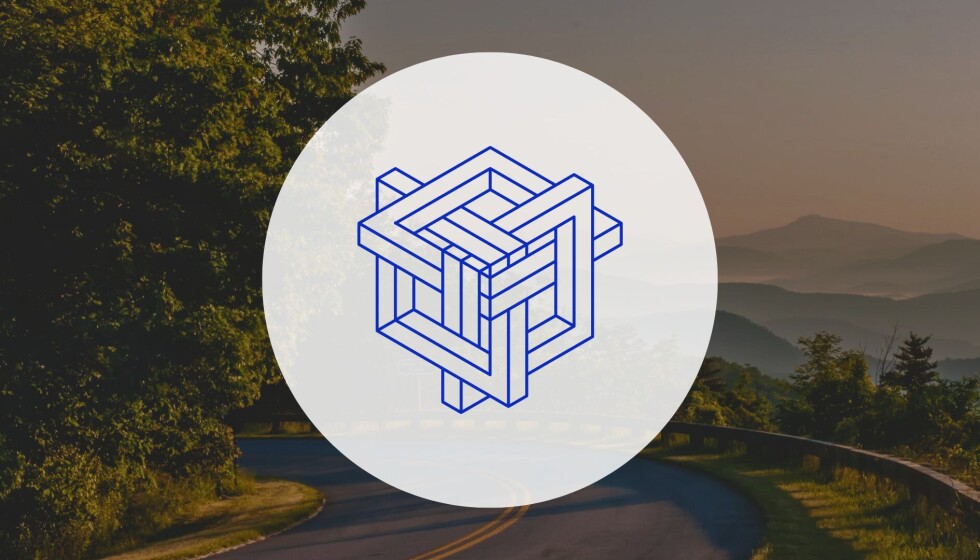Starting from April, the relatively flat statistical picture of the Ukrainian car market changed to an atypical increase in volumes in some of its parts. In May, this process was even more noticeable. First of all, in the segment of resales of passenger cars in the domestic market, domestic resales of electric vehicles have slightly increased (although under the current circumstances this should not happen), a similar situation is also observed in the segment of small commercial vehicles (LCV).
Studying the market picture in more detail, the IDA experts recorded a rapid increase in volumes in several more segments of the car market. And it is worth talking about them in more detail.
But first, about those parts of the market, the volumes of which have not increased — the import of used vehicles (of all types) and the sale of new ones. Here, the statistical picture is quite normal, with fluctuations in the number of TK from month to month within natural limits. Motorcycles will not be taken into account, since two-wheeler auctions are directly dependent on seasonality (and in some places also the annual climate).
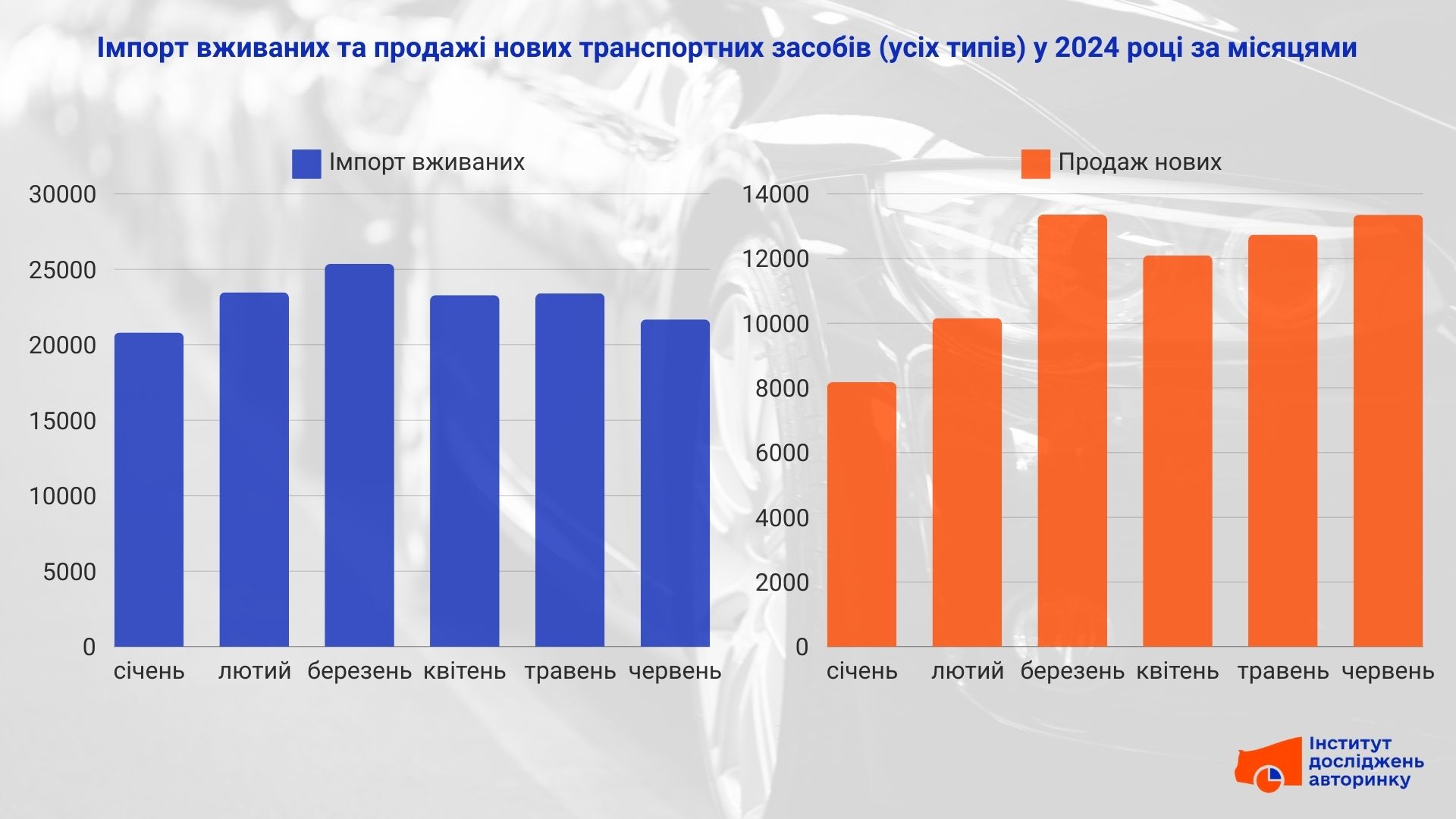
Why are these two diagrams shown? They serve as an indicator that there was no growth of the entire car market, in the sense of a real increase in the number of commodity transactions. Because if that were the case, more imported and new vehicles would be bought.
On the other hand, re-registrations of passenger cars, motorcycles and mopeds (these three categories are taken specifically, as so far only they can be re-registrated in the Diya application) significantly increased in April-May, after which in June they almost returned to the level recorded in the first quarter.
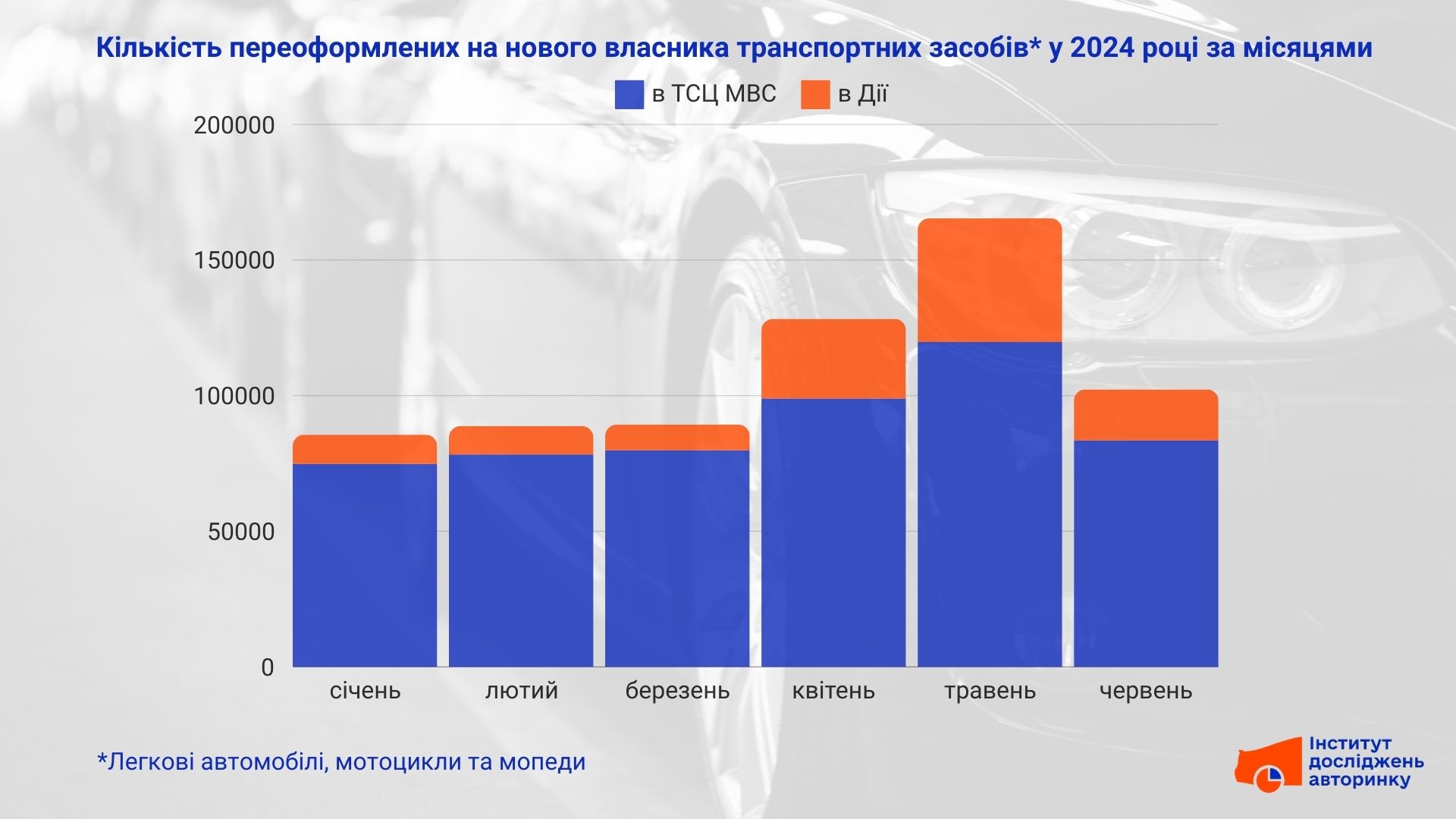
Another interesting part of the market for research is the donation of transport. Even without specifying numerical values, it is clear how much the number of officially donated TK has increased in the 4th and 5th months of the current year. So far, the volumes are such that in January-March there are more gifts than in the past six months, and in April-June (within one month) — more than in the entire past year of 2023.
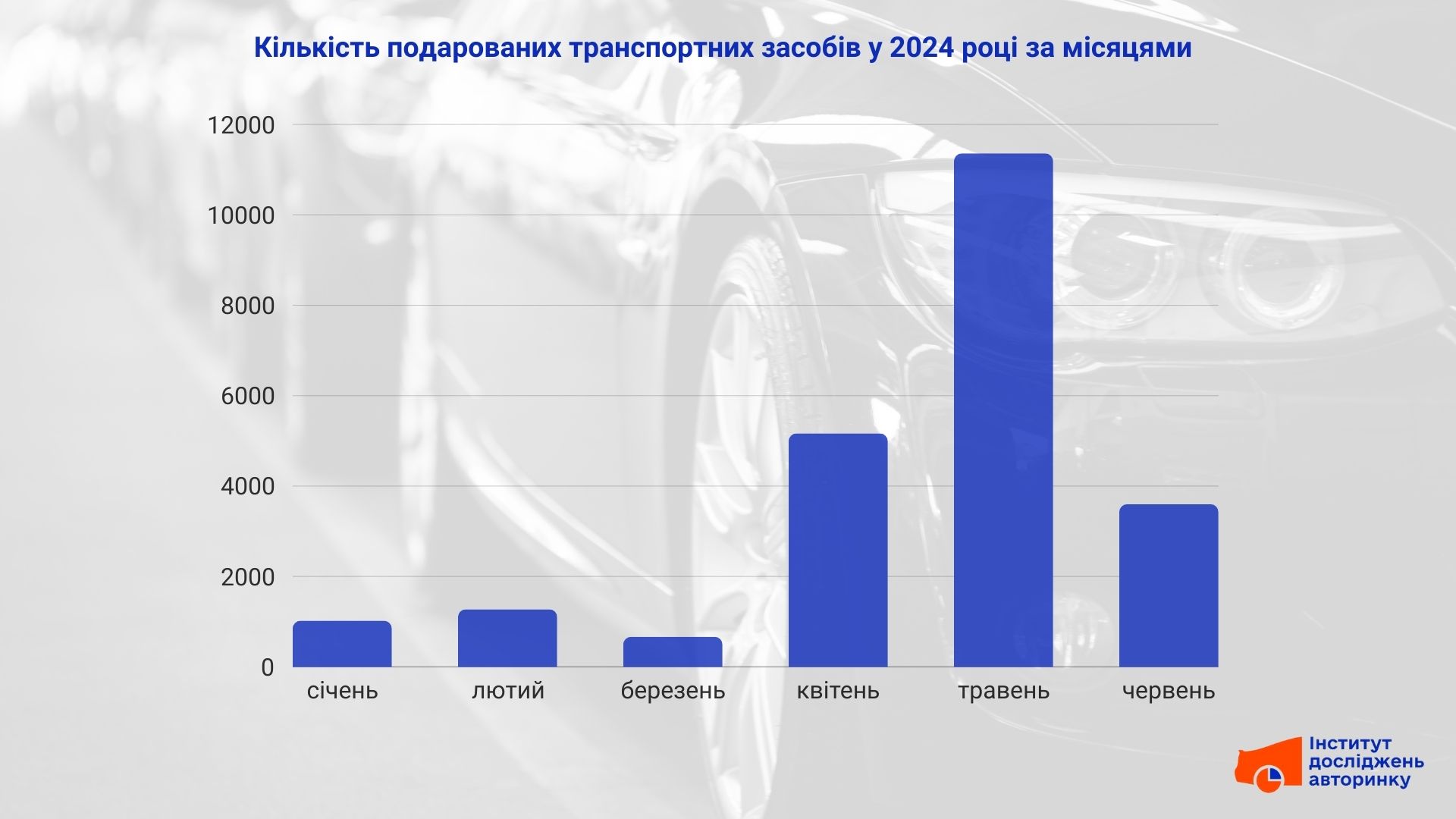
Next, we should look at another rather specific service provided by the Ministry of Internal Affairs of Ukraine — the removal of TK from the register in connection with its culling. This operation is mostly ordered when the car, due to old age and complete loss of resource reserve, can no longer perform its functions, or was destroyed in a road accident or as a result of other reasons (fire, flood, explosion, etc.).
However, even though this service doesnʼt actually have anything to do with reselling or donating, its order volumes have also grown in sync with some of the ones weʼre looking at here.
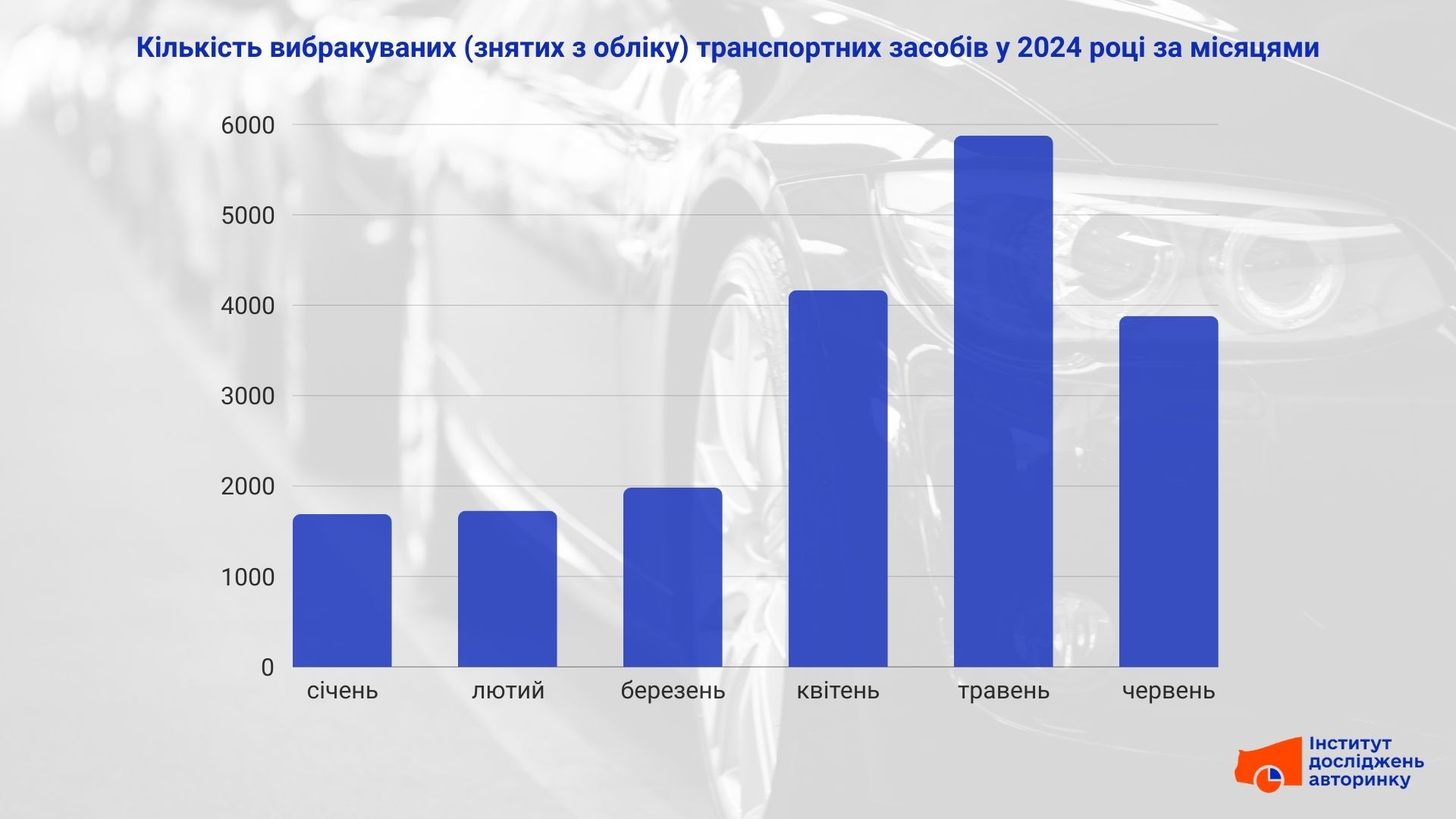
So what is the reason? It is here alone, common, and it was already announced earlier by the analysts of the Auto Market Research Institute — the entry into force of the new law on mobilization, which provides for the potential possibility of seizing vehicles for defense needs from those owners who have more than one car.
Accordingly, this caused a massive influx of car owners to the territorial service centers of the Ministry of Internal Affairs (and more active use of car sales in the Diya application) to reissue their TK to other persons (mostly family or family members) in order to eventually have no more than one vehicle registered to them means.
Regarding donation, this method is used as an alternative to re-registration (resale) to a new owner. Under certain conditions (defined by the Tax Code, Article 174), in the case of using a gift, the tax (which is levied upon the sale of the second or more vehicles during the year) is not applied.
- Do you need a "freshly driven" car? You can order it from a reliable partner of IDA — the company West Auto Hub .
The question of culling requires a separate comment — why are car owners worried about non-working cars and are in a hurry to remove them from the register? First of all, for the same reason that prompts reissuance of TK for other persons — so as not to have two or more TK registered for yourself.
Another reason for the popularity of culling is old sales "by proxy" or by transfer of a registration certificate. The car could change a certain number of owners, but it legally belongs to the person whose last name is indicated in the SPR. Accordingly, this makes it difficult to reach the "1 TK per 1 person" format. Therefore, part of such legal (but no longer actual) owners, especially those who have lost contact with the actual owner, or have them, but he refuses to register the car for himself, resort to culling.
One paragraph in the law — and tens of thousands of "rewritten", donated and deregistered cars forever.
In June, there was a decrease in the volume of atypical transactions for the Ukrainian car market, but the number of donations, rejections, as well as (although closer to the norm) cars re-registered at TSC or Diya still remain at a much higher than average level. Which shows that until now in the official state statistics there is a considerable part of non-commodity transactions caused by the above-mentioned circumstances.
Based on the fact that the state of war still continues, the purchasing power of citizens is not increasing, the exchange rate of the US dollar and the euro has changed not in favor of the hryvnia, that is, there are a number of factors that inhibit the development of the Ukrainian car market, the volume of actual (commodity) transactions could not increase. Counting the number of imports and sales of new vehicles confirm this opinion.
Accordingly, the effective volume of the secondary market, according to the experts of the Institute of Car Market Research, is now approximately 20% smaller than the numbers obtained as a result of the total calculation of transactions for the change of owner for each of the segments of the secondary car market. Taking into account the tendency to return the values to the average annual values (if we rely on the sections of 2023), we can assume that in the next month or two, the official statistics will correspond to the number of real purchase and sale agreements with a minimal presence of non-commodity "overwritings" of motor vehicles.
Subscribe to the Telegram channel of the Auto Market Research Institute to be the first to receive information without advertising or spam.
